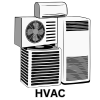Let’s go in detail about the fuels used in helicopters:

In this article:
1. Definition of Helicopter Fuel
Helicopter fuel is a specially formulated fuel used to power helicopter engines.
- The type of fuel depends on the engine type: piston (reciprocating) engines or turboshaft engines (turbine engines).
- Helicopter fuel is designed for high reliability, stable combustion, and safe operation at varying altitudes and temperatures.
2. Types of Helicopter Engines and Their Fuel
A. Piston Engine Helicopters
- Similar to small fixed-wing aircraft engines.
- Fuel Type: Aviation gasoline (Avgas)
- Usually 100LL (Low Lead), sometimes 100/130 or 91/96 octane depending on aircraft requirements.
- Characteristics:
- High-octane petrol prevents knocking in high-compression engines.
- Stable at low and high temperatures, suitable for varied altitudes.
Example Helicopters: Robinson R22, R44 (piston variants)
B. Turboshaft (Turbine) Helicopters
- Most modern helicopters use turboshaft engines.
- Fuel Type: Kerosene-based Jet A or Jet A-1
- Characteristics:
- Similar to jet fuel used in fixed-wing turbine aircraft
- Flash point ~38°C, low freezing point (−47°C for Jet A-1)
- High energy density for sustained rotor power
- Clean-burning for turbine engines
Example Helicopters:
- Bell 206, Sikorsky S-76, Airbus H145
3. Key Properties of Helicopter Fuel
| Property | Importance |
|---|---|
| High Energy Content | Provides sufficient rotor power for lift and maneuvering |
| Low Freezing Point | Safe operation at high altitudes |
| High Flash Point | Safety in storage and refueling |
| Clean Combustion | Prevents turbine deposits and engine wear |
| Stable Storage | Can remain safe in tanks without degradation |
4. Summary
| Engine Type | Fuel Used | Notes |
|---|---|---|
| Piston Engine | Avgas 100LL | High-octane petrol, prevents knocking |
| Turboshaft Engine | Jet A / Jet A-1 | Kerosene-based, high energy, suitable for turbines |
- Helicopter fuel depends on engine type: piston helicopters use Avgas, turbine helicopters use Jet A/Jet A-1.
- Fuel choice affects engine performance, safety, and reliability.
- Using the wrong fuel type can cause engine damage or catastrophic failure, especially in turbine engines.
💡 Tip:
- Most modern helicopters are turboshaft-powered, so Jet A / Jet A-1 is the standard fuel.
- Smaller training helicopters with piston engines may still use 100LL Avgas.
Other courses:



